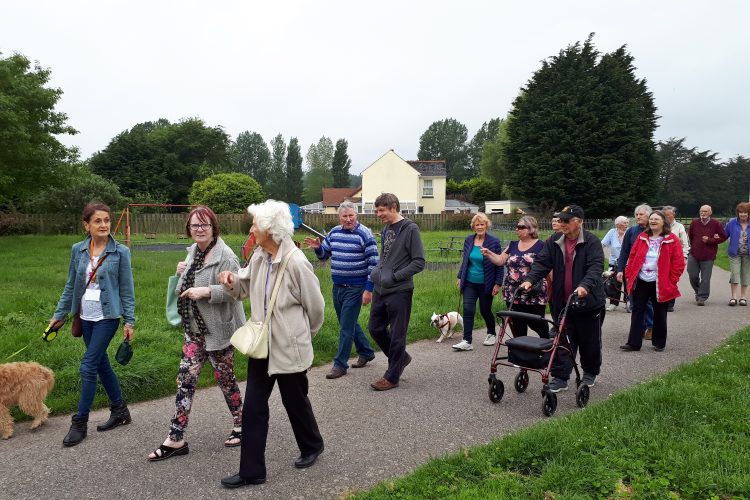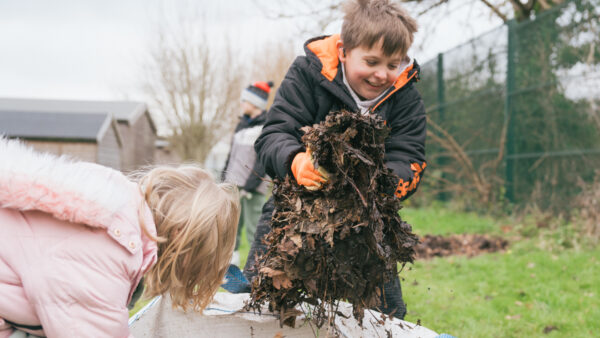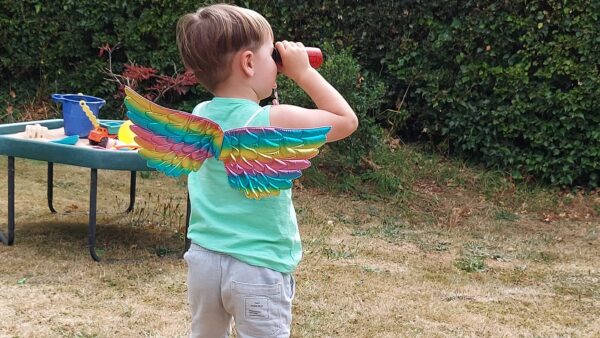Dementia and the value of community
People living with dementia often experience social isolation and stigma. The negative effects of this, such as anxiety and depression, are shared by families and carers. Creating opportunities for people living with dementia to remain active in their community helps to remove social barriers and supports people to maintain physically, socially and mentally active lives for longer.
In most communities there are resources that can help people with dementia remain connected to their neighbourhoods.
Parks and gardens
Making links with your local park can bring immediate benefits, as they may be within walking distance and are likely to be places that people are familiar with. Parks are free to enter, often central to a community and used by a wide cross-section of the population.
Parks lend themselves to a variety of activities, enabling individual preferences to be accommodated. Gardens are a great reminder of the seasons. Time and place can often be challenging for people with dementia and spending time outside re-connects them with the seasons and the movement of time.
Garden centres
Garden centres can be good places to visit as they often have facilities such as toilets and cafes. It can also be somewhere that you can visit in all weathers and many cater well for a wide cross-section of visitors.
Multi-purpose trails
Accessible hard surfaced routes through natural areas offer routes for walkers or people using mobility aids such as powered mobility vehicles. There are usually parking facilities and some will have a nearby café, pub or toilets.
Even a short visit will be valuable as even 10 minutes outside brings benefits of extra Vitamin D and oxygen; vital for bones, the brain, heart and muscles.
Walking groups and outdoor activity groups
Healthy walking groups attached to local GP surgeries are growing. If you live at home with dementia, a walking group can help get you out and about with the opportunity of keeping fit as well as socialising.
If healthy walking groups don’t fit your access needs or levels of stamina/mobility, then consider asking around or putting an advert in your local shop/library to see if there are others who are also looking for someone to go for a stroll with. Take a look at the dementia-friendly walking groups we run and perhaps be inspired to set up one in your area..
Young people
There is growing awareness of the benefits of intergenerational activities between older and younger people; particularly in residential care environments. Increasing numbers of care homes in the UK are developing partnerships with local schools and an activity like gardening enables the sharing of knowledge,
experience and increased understanding (not to mention the physical, social and mental benefits of being outdoors!). If we truly want our communities to be dementia-friendly then it is through our future community members that we can help to dispel stigma and nurture acceptance and support.
Your own resources
- If you work in a care home, there may be rooms/garden areas there that could be made available for use by outside organisations; helping to bring community life into the home and giving residents the chance to socialise with others.
- If you run, own or work at a community resource and you feel it could bring value to the lives of people with dementia, have you thought about contacting local care homes, carers groups or memory cafes to see what you can offer?
- You may be a member of a dementia/carer peer support group, in which case your group is a community resource. You have knowledge and skills to bring awareness to others; to demonstrate that someone living with dementia can LIVE with dementia if there are social opportunities in the community for them and their family.
Other resources include:
- Libraries
- Community cafes
- Dementia-specific clubs e.g. memory/dementia cafes, Age UK day centres, Alzheimer Society clubs, peer-support groups
- Schools, youth groups and colleges
Top tips
- It takes time to develop partnerships with local resources, but putting the effort in builds stronger foundations and long-term relationships
- Offer support and guidance to the community; people who run local resources may not have previous experience of dementia and will lack confidence; help them to help you
- When promoting yourself as a resource, besides the usual flyers and leaflet drops, use the media (including social) and form partnerships with others to pool promotional opportunities
- Contact schools, colleges and youth groups to see if they are interested in collaborating.



